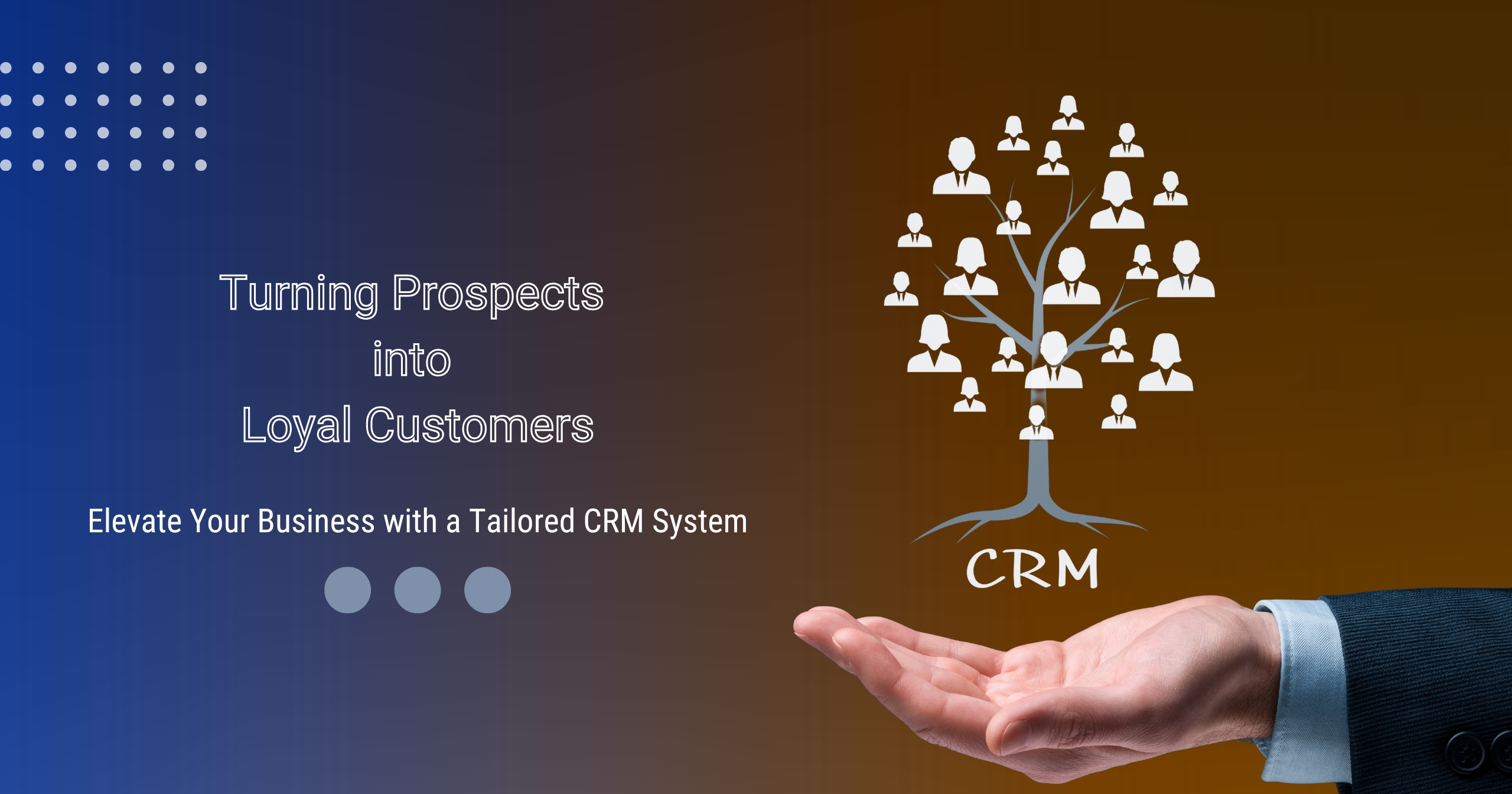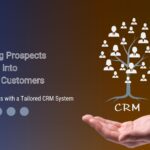Customer Relationship Management (CRM) systems are no longer just a luxury for businesses; they have become essential tools for managing customer interactions, driving sales, and improving overall efficiency. However, not all CRM systems are created equal. Off-the-shelf solutions often fall short of meeting the unique needs of businesses, especially as they grow and evolve. This is where custom CRM systems come into play. A custom CRM system can be tailored specifically to your business processes, providing the flexibility and functionality needed to maximize efficiency and foster growth. In this blog, we’ll explore why a custom CRM system is a smart investment for your business.
Tailored to Your Business Needs
A custom CRM system is designed from the ground up to meet your specific business requirements. Unlike generic CRMs that offer a one-size-fits-all solution, a custom CRM can be fine-tuned to fit your company’s unique workflows, processes, and goals. Whether it’s tracking customer interactions, managing leads, automating marketing campaigns, or integrating with other systems like email marketing tools or ERP software, a custom CRM ensures that every feature aligns perfectly with your business needs.
Benefits:
- Enhanced Workflow Integration: Seamlessly integrate your CRM with other business tools and systems to improve data flow and reduce manual data entry. This allows for smoother collaboration across departments.
- Scalability: As your business grows, a custom CRM can scale with you. It can adapt to increasing customer data, new products or services, and evolving sales strategies without compromising functionality.
Improved Customer Relationships
A well-implemented CRM system is crucial for managing customer relationships. Custom CRMs can offer advanced tools for tracking customer history, preferences, and interactions, allowing businesses to provide a more personalized experience. With insights into customer behavior, businesses can anticipate needs, tailor marketing campaigns, and build stronger customer relationships.
Benefits:
- Personalized Customer Experience: Custom CRMs enable businesses to track individual customer interactions across various touchpoints, ensuring customers receive consistent and customized communications.
- Proactive Customer Support: With a custom CRM, support teams can quickly access customer history, past interactions, and support tickets, enabling faster issue resolution and improving customer satisfaction.
Streamlined Sales Management
Effective sales management is critical for business success. A custom CRM can optimize the sales process by automating tasks like lead scoring, follow-ups, and reporting. This helps sales teams focus on closing deals rather than managing administrative tasks.
Benefits:
- Automated Sales Processes: Automate routine sales tasks, such as lead assignment, follow-up reminders, and reporting. This not only saves time but also ensures consistency and accuracy in the sales process.
- Real-Time Analytics: Gain access to real-time analytics that provide insights into sales performance, conversion rates, and lead quality. These analytics help sales teams identify opportunities, track progress, and make data-driven decisions.
Better Data Management and Security
Data is the lifeblood of any business, and a custom CRM can offer superior data management and security features. Off-the-shelf CRMs often lack the level of control over data access and security that businesses require. A custom CRM can include robust security measures, encryption, and compliance with data protection regulations to ensure that sensitive customer data is protected.
Benefits:
- Enhanced Data Security: Custom CRMs can be built with specific security protocols tailored to your industry’s needs, including encryption and multi-factor authentication, reducing the risk of data breaches.
- Compliance: Ensure that your CRM complies with relevant data protection laws and regulations, such as GDPR, HIPAA, or CCPA, safeguarding your business and customer trust.
Cost Efficiency in the Long Run
While the initial cost of developing a custom CRM may be higher than subscribing to an off-the-shelf solution, the long-term benefits outweigh the upfront investment. A custom CRM offers better ROI due to its ability to grow with your business and its ability to integrate seamlessly with other systems, reducing the need for additional software and minimizing integration costs.
Benefits:
- Lower Maintenance Costs: Custom CRMs are built with the specific requirements of your business in mind, which reduces the need for frequent updates and maintenance compared to generic systems.
- Better ROI: Over time, the efficiency gains, improved customer satisfaction, and increased sales can provide a significant return on investment.
Conclusion
A custom CRM system is not just a tool; it’s a strategic asset that can transform how your business operates and interacts with customers. By tailoring a CRM to your business needs, you can improve customer relationships, streamline sales management, enhance data security, and drive growth. Whether you’re a small business looking to scale or a large enterprise seeking to optimize operations, investing in a custom CRM system is a decision that will pay off in the long run. It’s about aligning technology with your business goals to create a competitive advantage in an increasingly digital world.





